detail profile walter carvalho
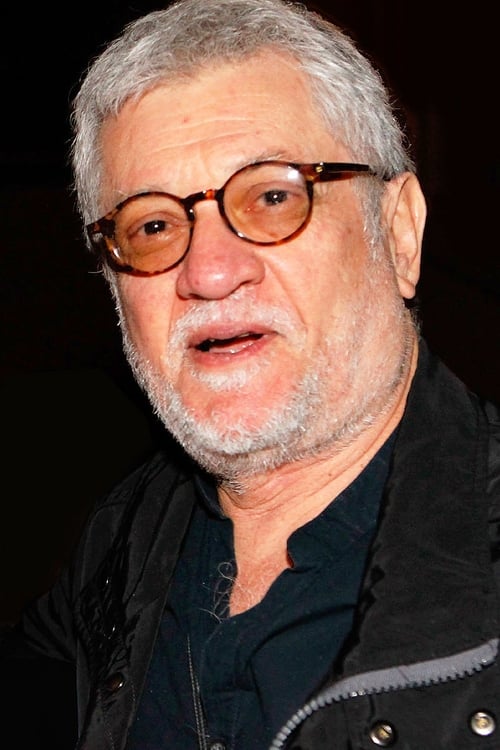
Riwayat Hidup
Walter Carvalho is a critically and internationally acclaimed Brazilian cinematographer.
Carvalho has worked on over 70 films in his career since entering the Cinema of Brazil in 1973.
He has won some 30 different professional film awards to date and has worked on acclaimed Brazilian films such as Carandiru in 2003.
He is the father of also cinematographer Lula Carvalho.
Info Pribadi
Peran Yang Di Mainkan Walter Carvalho
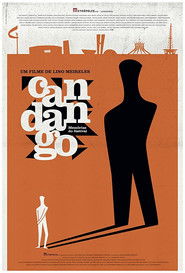 In 1965 a year after the military...
In 1965 a year after the military...Candango: Memoirs from a Festival 2020
In 1965, a year after the military coup in Brazil, an oasis of freedom opened in the country's capital. The Brasília Film Festival: a landmark of cultural and political resistance. Its story is that of Brazilian cinema itself.
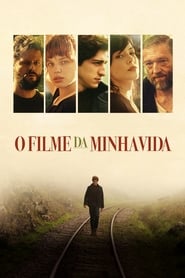 The sierras of southern Brazil 1963 The...
The sierras of southern Brazil 1963 The...The Movie of My Life 2017
The sierras of southern Brazil, 1963. The son of an French man and a Brazilian woman, Tony is a young man with a profound love of cinema and poetry. After graduating from college he returns to his small town in rural Brazil, to find out that his father had left for good, back to France. Tony then looks for the company of his fathers friends in search of information and references of a lost male role-model. He becomes a school teacher and a male figure to kids, in an attempt to provide them with something he lacks himself. A series of developments lead him to a surprising final lead on his fathers' whereabouts and reasons for leaving.
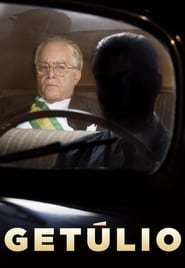 The movie depicts the political crisis...
The movie depicts the political crisis...Getulio 2014
The movie depicts the political crisis that led to the suicide of president Getúlio Vargas, in the 19 days that preceded August 24, 1954. The crisis began with the attempted assassination of journalist and politician Carlos Lacerda in August 5, 1954, at rua Toneleros, Rio de Janeiro, in which Major Vaz was assassinated instead. Investigations pointed to Gregório Fortunato, chief of Vargas' personal guard, as the orderer of the frustrated assassination. This incident was one of the most importants in the history of Brazil.
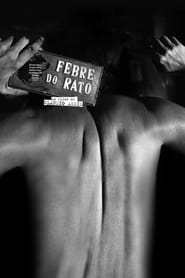 Zizo a radical and anarchist poet...
Zizo a radical and anarchist poet...Rat Fever 2012
Zizo, a radical and anarchist poet living in a marginal quarter of Recife in the north eastern state of Pernambuco, distributes his social angst-filled thoughts through a publication named Febre do Rato, and spews poetry to anyone who’d listen. Our character always revolves within the universe that he has created around himself. A very particular world, in which satisfying the unfortunate is a mixture of a kind of benefit with high dose of malice.
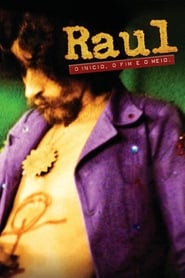 As the world boiled in the...
As the world boiled in the...Raul: O Início, o Fim e o Meio 2012
As the world boiled in the rush of Easy Rider bikes, in the frenetic pace of Elvis Presley, in Beatniks poets, in the explosion of counterculture, a boy from Bahia gave birth to Rock in Brazil. A runaway flying saucer that abducted the hearts and minds of thousands of fans, Raul Seixas, a man who became a myth. Raul died young because he lived intensely. Rock n 'roll, free love, alternative society, drugs, black magic, military dictatorship, women and daughters. A man who wanted to live from his work and died for it. The beginning, the end and the middle are confused, because the story is not over. The film reveals through rare images of archive, meeting with relatives, conversations with artists, producers and friends, the trajectory of the legend of Rock.
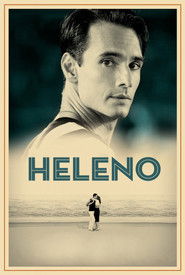 Jose Henrique Fonseca crafts an ambitious...
Jose Henrique Fonseca crafts an ambitious...Heleno 2011
José Henrique Fonseca crafts an ambitious and long overdue homage to a central icon in Brazil’s 20th century history. Reminiscent of film noir classics, the biopic tells the glorious and tragic story of the legendary football striker Heleno de Freitas. The sumptuous black and white cinematography reflects the chic life of Rio de Janeiro in the 1940s as it fell under the spell of sports royalty. Heleno was no doubt one of the most popular players of his time for his bravura in the field and magnificent goal-scoring that lead the Botafogo team to the top and himself into a vicious downward spiral.
 Jessica Sabrina and Daiane have dreams...
Jessica Sabrina and Daiane have dreams...Stolen Dreams 2009
Jessica, Sabrina and Daiane have dreams, just like all young people of any social class or place in the world. They live in a low-income neighborhood in the periphery of Rio de Janeiro and find in prostitution a way to survive and satisfy their consumer desires. However, even faced with the trials of absolute uncertainty and lack of hope, Jessica, Sabrina and Daiane insist on loving, having fun and planning their future.
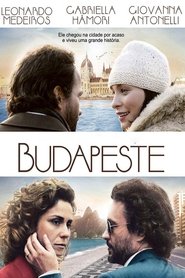 Jos Costa is a Brazilian ghost...
Jos Costa is a Brazilian ghost...Budapeste 2009
José Costa is a Brazilian ghost writer. Returning from a ghost writers convention his airplane is rerouted to Budapest. His life is also rerouted when he meets Krista and with her help, learns "the only language in the world which, according to the tongue-wagers, the devil respects.
 In northern Brazil Hermila patiently waits...
In northern Brazil Hermila patiently waits...Love for Sale 2006
In northern Brazil, Hermila patiently waits for her husband. However, he has abandoned her. Sexy, restless and resolute, she raffles off "a night in paradise" with herself. This beautifully-shot portrait doesn't shy away from the burdens of a young scarred woman, but it also celebrates her courage to live according to her own rules.
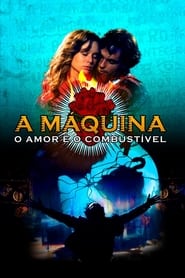 In Nordestina a small town lost...
In Nordestina a small town lost...The Machine 2006
In Nordestina, a small town lost in the Brazilian badlands, young Karina dreams of becoming an actress and leaving to explore the world. Before losing his love, Dona Nazaré’s son, Antônio, takes the first step in a kamikaze crusade to bring the world to Karina. For that, Antônio leaves town and announces, in a TV show that he will set off on a sensational adventure: a trip into the future, starting from Nordestina’s square. A story where dreams contradict reality, geographical and political conditions threaten to block life, and love plays the part of the transforming element.
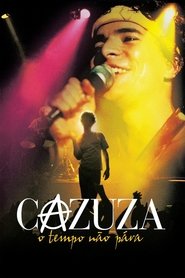 Inspired by the moving book S...
Inspired by the moving book S...Cazuza: Time Doesn't Stop 2004
Inspired by the moving book “Só as Mães São Felizes”, by Lucinha Araújo, Cazuza's mother, the film covers a little more than 10 years of the singer’s crazy and brief life – from the beginning of his career in the Circo Voador venue, in 1981, to the huge success and the apotheosis of his shows with the Barão Vermelho band, his solo career, his relations with his parents, friends, lovers and passions, and the courage he had to face his final years, with HIV, until his death, in 1990.
 When a doctor decides to carry...
When a doctor decides to carry...Carandiru 2003
When a doctor decides to carry out an AIDS prevention program inside Latin America’s largest prison: the Casa de Detenção de São Paulo - Carandiru, he meets the future victims of one of the darkest days in Brazilian History when the State of São Paulo’s Military Police, with the excuse for law enforcement, shot to death 111 people. Based on real facts and on the book written by Dráuzio Varella.
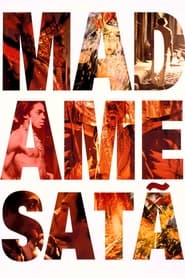 A story inspired by the life...
A story inspired by the life...Madame Satã 2002
A story inspired by the life of one of the most remarkable figures in Brazilian popular culture, João Francisco dos Santos (1900-1976). In turn, bandit, transvestite, street fighter, brothel cook, convict and father to seven adopted children, dos Santos – better known as Madame Satã – was also a notorious gay performer who pushed social boundaries in a volatile time.
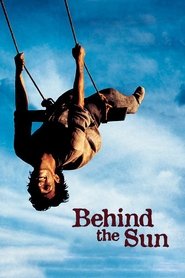 Brazilian badlands April 1910 Tonho is ordered...
Brazilian badlands April 1910 Tonho is ordered...Behind the Sun 2001
Brazilian badlands, April 1910. Tonho is ordered by his father to avenge the death of his older brother. The young man knows that if he commits this crime, his life will be divided in two: the twenty years he has already lived and the few days he has left to live, before the other family avenges their son's death. He is torn between fulfilling his ancestral duty and rebelling against it, urged by his younger brother Pacu. That's when a tiny travelling circus passes through the vast badlands where Tonho's family lives.
 During a time of political upheaval...
During a time of political upheaval...Foreign Land 1996
During a time of political upheaval in Brazil, two strangers meet by coincidence in a foreign land and end up caught in the middle of a gem smuggling ring.
 In 1987 in Goinia two paper collectors...
In 1987 in Goinia two paper collectors...Cesium-137 1990
In 1987, in Goiânia, two paper collectors find a radioactive capsule and sell it to the owner of a junkyard. Once the capsule is opened, more than 250 people end up contaminated by the substance called Cesium 137, being the biggest radiological accident in the history of Brazil.
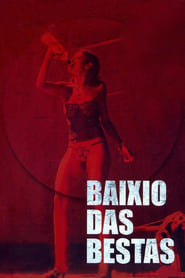 A man falls in love with...
A man falls in love with...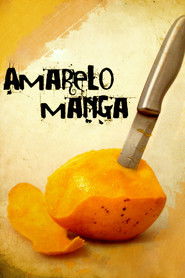 The lives of a macho butcher...
The lives of a macho butcher...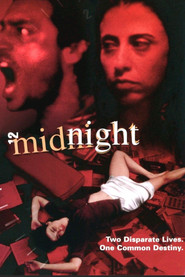 On December 31st 1999 destiny brings a...
On December 31st 1999 destiny brings a... An emotional journey of a former...
An emotional journey of a former...